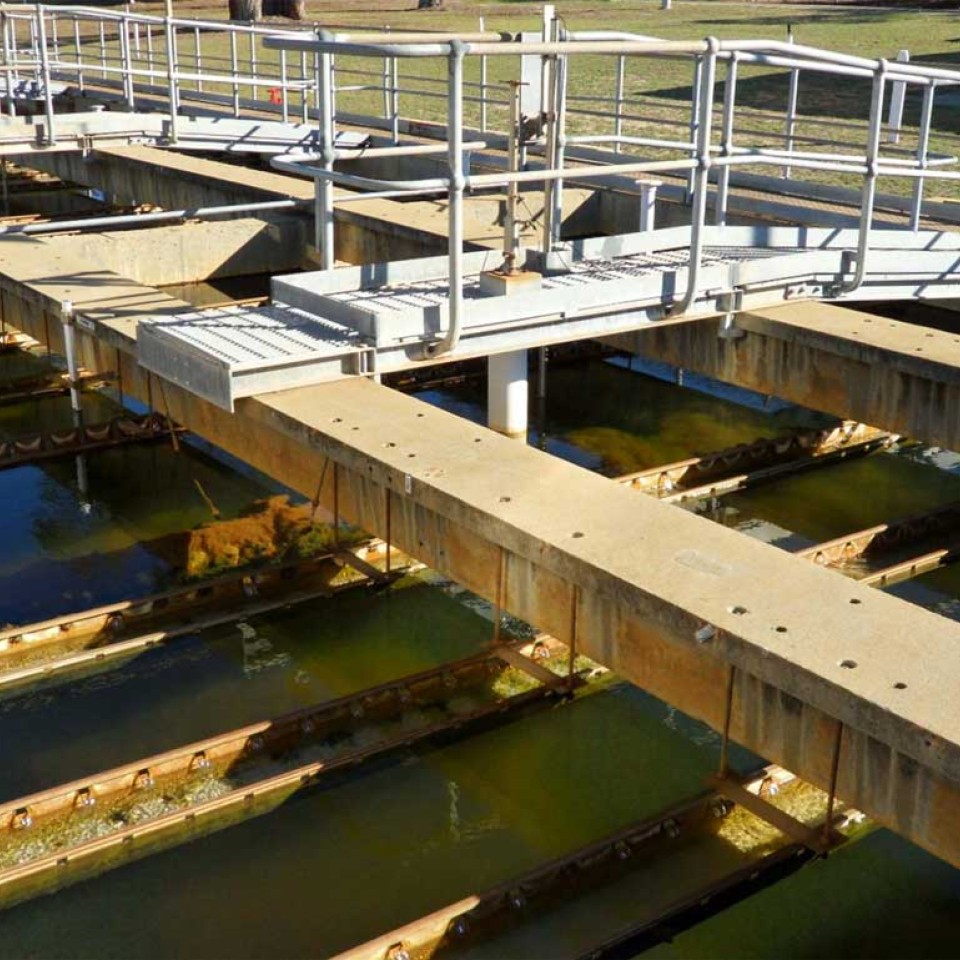The 95 MLd Mirabooka Water Treatment Plant (WTP) in Perth, Australia, consists of aeration, clarification, filtration and disinfection. The WTP treats water from numerous groundwater sources (bores) with typically 2 or 3 bores operating at any one time. These sources fall into two categories – artesian and shallow bores. The shallow bores are of worse water quality with higher dissolved organic content.
Switching between bores results in highly variable source water quality and these rapid quality changes meant that the manually set coagulant dose was often incorrect. This resulted in treatment failure when under-dosing coagulant, and increased operating cost when overdosing coagulant. In addition, high variability in filtered water chlorine demand caused difficulties in maintaining stable chlorine residuals.
Water Corp evaluated the Compass coagulant control system through a two-month full scale trial in 2011. The aim of the trial was to demonstrate reliable and robust WTP performance whilst meeting treated water quality targets of; filtered water turbidity <0.2 NTU, and treated water UV 254 absorbance of <0.05/cm.
During the trial period bore selections were manipulated to produce the maximum amount of variability in terms of both turbidity and dissolved organics. Turbidity peaks occurred when the organic content was stable, dissolved organic peaks occurred when the turbidity was stable, and on some occasions the turbidity dropped when the dissolved organic content increased.
The trial was considered a success and Compass has been controlling the coagulant dose ever since. Water Corporation have reported the following results:
- Improved overall organics removal by 10%
- Improved overall turbidity removal of 15%
- Improved overall THM reduction of 10%
- More stable chlorine residual
- Coagulant use reduced by 18%
- Chlorine use reduced by 22%
- Lime use reduced by 24%
- Annual chemical cost savings of $144,000
- Considered robust, reliable and stable in difficult groundwater treatment conditions

